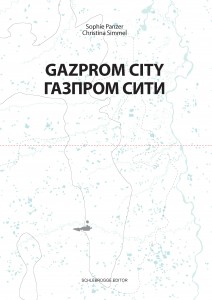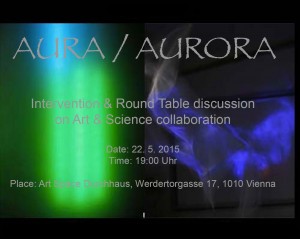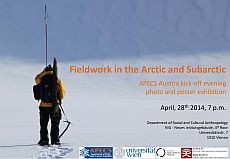The Arctic and Subarctic Working Group Photography Blog: Cities, Transportation, People and Everyday Life
This blog features photographs from Austrian scientists working in the Arctic and Subarctic: https://aas.photo.blog/
This blog features photographs from Austrian scientists working in the Arctic and Subarctic: https://aas.photo.blog/

Editors: Sophie Panzer, Christina Simmel
Authors: Suzanne Bontemps, Sophie Panzer, Christina Simmel
Glossary: Gertrude Saxinger
Gazprom City – a report about life at the other end of the gas pipeline: ‘If you’re at home and you want to make yourself a nice cup of coffee in the morning, and you turn on the stove but there is no gas, then you know that something must have happened in Novy Urengoy.’ What connects Europe to a city in the polar circle? The Gazprom company exploits the gas fields around Novy Urengoy. More than half of the natural gas extracted in Russia is produced there. A substantial portion of this gas is exported to European countries.
Abstract submission deadline 1.8.2015
The 1st Central European Polar Meeting will be held in November 2015 in Vienna. This meeting is a memorial to the Austrian polar explorer and scientist Julius Payer (1841-1915), to commemorate his achievements for the international polar sciences. It is jointly organized by the Committee on Polar Research of the Polish Academy of Sciences, the Centre for Polar Ecology, Czech Republic, and the Austrian Polar Research Institute, in cooperation with the National Committee for Global Change of the Austrian Academy of Sciences.
The 1st Central European Polar Meeting will bring together polar researchers including distinguished scientists and the next generation of polar researchers, from Central European countries and around the globe. This meeting is one of the first international activities of the newly established Central European Polar Partnership, which aims at increasing the visibility and coordinating polar research in and among the participating countries.
Conference-Poster [pdf]
 Durchhaus Art Space, Werdertorgasse 17, 1010 Vienna
Durchhaus Art Space, Werdertorgasse 17, 1010 Vienna
A Polar evening with a panel discussion on the magnificent Aurora Borealis in science & art and a review of Canada’s Arctic Council chairmanship 2013-2015. Hosted by A.A.S., the Canadian Embassy and other Arctic related partners.
Detailled invitation: Aurora Event 22052015_invitation [pdf]
The breath-taking Polar lights – Aurora – fascinate, scare and raise questions about the unknown. Therefore, they are matters of inquires in natural sciences as well as in the humanities and social sciences. At the same time they inspire societies in creating collective myths, stories and agency. Not least, they inspire artists to reflect, interpret and intervene with this spectacle. This event unravels and contests perceptions of the Aurora phenomena among artists and scientists.
This is the most recent phase of the ongoing art & science project presenting an interactive interpretation of the Polar Lights – Aurora Borealis and Australis, the magnificent and dynamic spectacle that has retained a near-mythical status in circumpolar cultures over millennia. The dazzling geo-physical phenomenon, typically observed in the Circumpolar Regions is not only a brilliant spectacle but it also makes visible the invisible world of electromagnetic activities.
The collaboration between art & science has the potential to create new knowledge, ideas and processes. New ways of seeing, experiencing and interpreting can lead to benefits in both fields. This round-table discussion aims to explore trans-disciplinary collaborations within the creative process of art, science and technology in the context of the Polar Lights.
Dr. Gerti Saxinger (Department for Social and Cultural Anthropology & Austrian Polar Research Institute APRI),
Doris Kaltenbacher (Durchhaus Art Space):
Introduction by the hosts Mark Bailey, Ambassador of Canada to Austria: “The Arctic, its economic and social development: Looking back on Canada’s achievements for the People of the North during its Arctic Council chairmanship 2013-2015”
Canadian Arctic images
Panel Discussion: Aura/Aurora – a science and arts perspective
Food and Wine Reception
Registration (organisational reasons only):
Gertrude.eilmsteiner-saxinger@univie.ac.at
Bettina Schülke, Artist, PhD Cand., University of Lapland, Faculty of Art and Design
Nina Czegledy, Artist, Curator, Senior Fellow University of Toronto, Concordia University Montreal, Hungarian University of Fine Arts.
Dr. Stefan Donecker, Austrian Academy of Sciences, Institute for Medieval Research.
Dr. Margarete Jahrmann, Artist, Curator, Dozentin for Game-Design, ZHdK Zürich, University of Fine Arts Vienna.
Dr. Werner Gruber, Lecturer, Institute for Experimental Physics, University of Vienna and Director of the Planetarium Vienna, Science Busters.
Chair: Dr. Verena Traeger, Curator, Institute for Social- and Cultural Anthropology, University of Vienna & Spokesperson of the “Working Group Circumpolar Regions and Siberia” at the German Association of Anthropologists
Embassy of Canada in Austria
Department for Social and Cultural Anthropology, Uni Vienna
ZKS: Centre for Canadian Studies, Uni Vienna
Durchhaus Art Space
APRI: Austrian Polar Research Institute
AAS: Working Group Arctic and Subarctic
Working Group for Circumpolar & Siberian Regions at German Association of Anthropologists (DGV)
AAS hosted a session at the 10th Anthropology Days on 23rd of April 2015. This time the focus was on Arctic Extractive Industries – community (Susanna Gartler) and political implications (Miguel Roncero as well as Felix Jaitner). Furthermore, we had a look into the Arctic mining discourse of the 16th century by Stefan Donecker.
All presentations as download:
Susanna Gartler: Hunters, Gatherers and Mining Companies: Aboriginal-Business Relations in the Case of First Nation Miners in the Yukon Territory [pdf]
Miguel Roncero: Arctic Resources: Development for Whom? An analysis of Artic policies and strategies from a resource‐fairness approach [pdf]
Stefan Donecker: Resource Extraction in the North: A Political Issue in the 16th century [pdf]
Felix Jaitner: Resource Dependency – Russia beyond a Resource curse? [pdf]
Das Koordinationsteam der RG Zirkumpolargebiete und Sibirien lädt Sie zu dem Workshop “Departures in the Circumpolar North and Siberia“ / „Aufbrüche im Zirkumpolaren Norden und Sibirien“ (Ausschreibungstext siehe unten) bei der kommenden DGV-Tagung in Marburg vom 30.9.-3.10.2015 ein.
Als Gastredner hat Mark Nuttall, University of Alberta CAN, zugesagt.
Inhaltlich orientiert sich der Workshop am übergreifenden Thema der DGV-Tagung 2015 „Krisen. Re-Formationen von Leben, Macht und Welt”. Nähere Informationen zur Tagung und die Call for Papers der anderen Workshops finden Sie unter: www.dgv-net.de.
Bitte beachten Sie, dass auf der Tagung pro Person nur ein Vortrag gehalten werden darf. Der Workshop wird in Englischer Sprache durchgeführt werden, mit der Möglichkeit Vorträge auch auf Deutsch zu halten.
Vorschläge für Präsentationen in Form von 1. einem Abstract (max. 1200 Wörter) sowie 2. einem kurzen Abstract für das Programmheft (max. 300 Wörter) senden Sie bitte bis zum 15. Februar 2015 an: zirkumpolargebiete-sibirien@dgv-net.de
Workshop-Organisation: Verena Traeger, Sophie Elixhauser, Gerti Eilmsteiner-Saxinger, Joachim Otto Habe
Über eine rege Teilnahme würden wir uns sehr freuen!
In situations of crisis established structures are breaking apart. Crises, however, also create opportunities for change and new beginnings. In the Circumpolar North, the preparation for crises involving complex decision-making and departures formed part of people’s daily lives for thousands of years. Moreover, survival strategies based on subsistence were part and parcel of a continual adaptation to changing environments and living conditions.
In the recent past, the circumpolar region has undergone far-reaching changes induced by colonialism and missionary activities leading to forced relocation and the introduction of a settled lifestyle, boarding schools and capitalist or socialist economic systems, accompanied by massive resource exploitation. Environmental pollution and climate change are becoming ever more acute, affecting subsistence and mobility practices, people’s environmental perceptions and sense of place, the stability of food security and cultural identities. Past crises have continued to affect the inhabitants over the course of many generations up until the present. A loss of indigenous traditions, languages and oral history as well as a lack of prospects, a rising propensity for violence, high suicide rates and drug abuse are some of the consequences. Across the Arctic region and Siberia various responses may be observed, and different solutions with regard to resource control, political self-determination and the recognition of indigenous rights are being developed. They reflect national sovereignty and democratic processes and show that people are ready to actively shape their future. This workshop invites broader theoretical, applied and comparative contributions as well as thematic papers and ethnographic case studies from the Circumpolar North and Siberia (presentations can be held in English or German).
In Krisensituationen brechen stabile Strukturen auf. Gleichzeitig bieten Krisen Chancen zu Veränderungen und zum Aufbruch. Im zirkumpolaren Norden waren die Vorbereitung auf Krisen und damit verbundene Entscheidungssituationen und Wendepunkte seit Jahrtausenden Teil des Lebens. Auf Subsistenz aufbauende Überlebensstrategien waren zudem stets mit der Anpassung an sich verändernde Lebensumstände (v.a. Umwelteinflüsse) verknüpft.
In der näheren Vergangenheit kam es zu besonders rapiden Veränderungen durch Kolonialismus und Missionierung und damit einhergehende Zwangsumsiedlungen und Einführung von Sesshaftigkeit, Internatsschulen sowie kapitalistischen oder sozialistischen Wirtschaftssystemen mit teils großflächigem Rohstoffabbau. Umweltverschmutzung und Klimawandel werden immer virulenter, wodurch Subsistenz- und Mobilitätspraktiken sowie Vorstellungen von Landschaft und Natur massiv beeinflusst und Nahrungssicherheit sowie kulturelle Identitäten instabil werden. Vergangene Krisen wirken über viele Generationen bis heute nach. Verlust von indigenen Traditionen, Sprachen und oral überliefertem Wissen, Perspektivenlosigkeit, steigende Gewalt, Drogenmissbrauch und hohe Suizidraten sind einige der Folgeerscheinungen. Rund um den nördlichen Polarkreis und in Sibirien beobachtet man vielseitige Reaktionen. Unterschiedlichste Lösungen in Bezug auf Ressourcenkontrolle, politische Selbstbestimmung und die Anerkennung indigener Rechte und Interessen wurden und werden entwickelt. Diese spiegeln nationalstaatliche Souveränität und Kontrolle sowie demokratische Prozesse wider und zeigen die Bereitschaft zum Aufbruch auf vielfältige Weise. Dieser Workshop lädt Beiträge ein, die sich entweder mit vergleichenden Überblicksthemen aus Theorie und Anwendung oder mit regionalspezifischen, thematischen Detailfragen aus dem zirkumpolaren Norden und Sibirien beschäftigen. Vorträge können in englischer und deutscher Sprache gehalten werden.
Monday April, 28th 7 p.m.
Department of Social and Cultural Anthropology
NIG – Neues Institutsgebäude, 4th floor
Universitätsstr. 7
1010 Vienna
Opening talks:
Univ. Prof. Dr. Peter Schweitzer
(Department of Social and Cultural Anthropology, Univ. of Vienna, Austrian Polar Research Institute)Univ. Prof. Dr. Andreas Richter
(Department of Department of Terrestrial Ecosystem Research, Univ. of Vienna, Austrian Polar Research Institute)Mag. Sigrid Schiesser
(Department of Social and Cultural Anthropology, Univ. of Vienna, APECS Austria)
 On April 28th, we celebrate the foundation of APECS Austria, which is part of the international and interdisciplinary Association of Polar Early Career Scientists (APECS). APECS provides a platform for interdisciplinary networking and exchange of researchers working in Arctic and Subarctic regions.
On April 28th, we celebrate the foundation of APECS Austria, which is part of the international and interdisciplinary Association of Polar Early Career Scientists (APECS). APECS provides a platform for interdisciplinary networking and exchange of researchers working in Arctic and Subarctic regions.
The photo and poster exhibition “Fieldwork in the Arctic and Subarctic” shows the diversity of Arctic and Subarctic environments, and gives insights into daily lives of residents and researchers. The photographs of the exhibition illustrate the context of research in Polar regions beyond conventional formats of texts, tables and numbers.
The exhibition will be open on workdays from April 28th until May 16th.
We are looking forward to meeting you, APECS Austria
ICASS VIII, Prince George, British Columbia, Canada
May 22 – 26, 2014
Mining operations and oil and gas projects in the Arctic and Sub-arctic usually take place in remote areas or offshore and primarily in distance from larger urban agglomerations. This remoteness leads to the need for a highly flexible workforce in terms of spatial as well as temporal mobility. This session brings together issues of labour mobility and community sustainability and welcomes papers touching on the following topics: 1, sketch of life-plans as well as coping with challenges and positive effects related to mobility on part of individuals; 2, changes in the community fabrics and in the ways such communities cope with the impact of labour mobility; 3, effects of industry-related in-migration to regional centers; 4, interactions of inter-regional FIFO workers with the local communities and with the environment; 5, the politics surrounding labour mobility, as well as the policies of various levels of government and of companies in relation to labour mobility; 6, the politics and economics of transportation infrastructure. The panel is fully open to the broad range of related topics raised by scholars and practitioners. In epistemological terms we aim to explore the notions of community development, hierarchies and inequality, ethical challenges and, mobility in general etc.
Session Convenors:
Gerti Eilmsteiner-Saxinger
Contact:Gertrude.Eilmsteiner-Saxinger@univie.ac.at
Remy Rouillard
Contact: rr455@cam.ac.uk
Please submit your paper proposals using the ICASS VIII submission form (http://resweb.res.unbc.ca/icass2014/ICASSVIII_Abstract_submittal_form_pdf_final.pdf) and indicate that you intend to contribute to the session on “Facing the Monstrous North”. Completed forms should be sent to IASSA Secretary, Cher Mazo (mazo@unbc.ca). The deadline for application is December 17, 2013.
You can find additional information on ICASS VIII at the conference website http://resweb.res.unbc.ca/icass2014/index.htm. Students, early career researchers, indigenous participants, and participants from Russia and other countries who have limited means to attend may apply for travel funding. Please refer to the conference website for details.
ICASS VIII, Prince George, British Columbia, Canada
May 22 – 26, 2014
We invite contributions for a panel at the Eighth International Congress of Arctic Social Sciences (ICASS VIII), taking place at the University of Northern British Columbia, Prince George, British Columbia, Canada on May 22 – 26, 2014. The session “Facing the Monstrous North” follows up on its predecessor, “Imagining the Supernatural North”, held at ICASS VII in 2011. In this panel, twenty scholars examined the cultural construction of the North as an area of the supernatural, with examples and case studies ranging from ancient Greek cosmology to present-day fantasy literature. A proceedings volume based on the panel will be published in 2014.
Following on from the success of this panel, we now want to focus on a particular aspect of the supernatural North: the role of monstrosity in the construction and perception of Northernness. In different cultural contexts and discourses, the forbidding and threatening aspects of the North were embodied by monstrous beings, the giants of Old Norse mythology and the Wendigo of the Algonquian tradition being just two examples. Yet the North was not only believed to be inhabited by monsters, it was also perceived as having the ability to draw out the most monstrous and debased aspects of human nature, as the discussions of Northern diabolism in the 16th century and the morbid fascination with Northern cannibalism in the 19th century have shown.
However, a scholarly discussion of the monstrous North should not be restricted to a mere juxtaposition of grotesque beings and practices. Evidenced by its etymology, a monstrum is a signifier (Latin monere, “to warn”; monstrare, “to show”), and the septentrional monsters signify and express human attitudes to the North. As such, an in-depth study of the Monstrous North would be an important contribution to the on-going discussion on perceptions of Northernness in the humanities and social sciences.
The panel intends to examine a variety of approaches to monstrosity, and contributions from different methodological angles and different disciplines (cultural and social anthropology, history, theology, literary studies, biology, psychology, gender studies etc.) are very welcome. Possible topics include, but are not limited to:
– Northern Cynocephali, Skiapodes and other wondrous races of the Greco-Roman canon
– Giants, trolls and their kin—Northern monsters in European mythology and folklore
– Wendigo, Wechuge and the monstrous North in Native American tradition
– Monstrous bodies and monstrous behavior—corporeality and deviance
– Anthropophagy in the North
– Northern witches as an embodiment of monstrous femininity
– Biological deviance in scientific (and pseudo-scientific) studies of Northern fauna and people
– Frankenstein’s Monster and the monstrous North in European literature
– The monstrous North in modern popular culture
Please submit your paper proposals using the ICASS VIII submission form (http://resweb.res.unbc.ca/icass2014/ICASSVIII_Abstract_submittal_form_pdf_final.pdf) and indicate that you intend to contribute to the session on “Facing the Monstrous North”. Completed forms should be sent to IASSA Secretary, Cher Mazo (mazo@unbc.ca), with a copy mailed to stefan.donecker@eui.eu. The deadline for application is December 17, 2013.
You can find additional information on ICASS VIII at the conference website http://resweb.res.unbc.ca/icass2014/index.htm. Students, early career researchers, indigenous participants, and participants from Russia and other countries who have limited means to attend may apply for travel funding. Please refer to the conference website for details.
For further questions, don’t hesitate to contact us!
Best regards,
Eleanor Rosamund Barraclough (University of Oxford)
eleanor.rosamund@gmail.com
Danielle Cudmore (Cornell University)
dmc282@cornell.edu
Stefan Donecker (Working Group Arctic and Subarctic, Vienna)
stefan.donecker@eui.eu
The Embassy of Canada in Austria, in cooperation with the University of
Vienna and a number of other renowned partners, is pleased to announce
an
Thursday, December 5, 2013, 18:45Uhr
Institut für Geographie und Regionalforschung (NIG)
1010 Wien, Universitätsstr. 7/ 4.Stock: Hörsaal 4C (Trakt C/Raum C409)
Program:
Welcome words by the Embassy of Canada
Short presentation (in English) of the book “Wege zum Norden. Wiener Forschungen zu Arktis und Subarktis”, published recently by A.A.S. (Working Group Arctic and Subarctic) with discussion
Presentation by Prof Dr. Whitney LACKENBAUER (University of Waterloo/St. Jerome’s University) on followed by a discussion moderated by Prof. Dr. Peter SCHWEITZER (University of Vienna, Austrian Polar Research Institute & Institute for Cultural and Social Anthropology)
After the discussion you are kindly invited to refreshments. Please register at vienn.events@international.gc.ca or by phone +43 (1) 531 38-3284